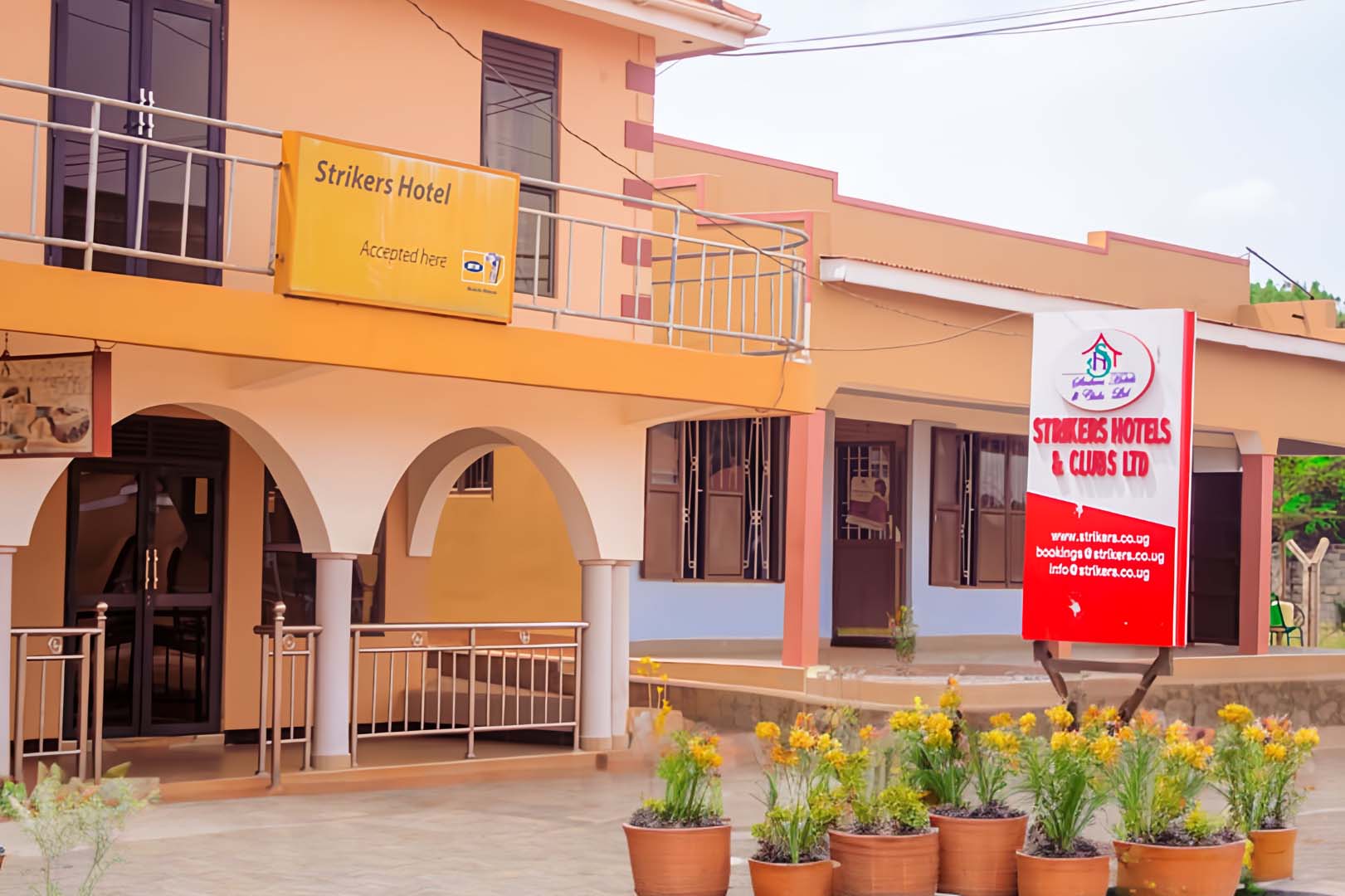In today’s fast-paced world, travelers increasingly rely on hotels to provide a home away from home, offering both comfort and convenience. In our tech-savvy era, one amenity that has become indispensable for guests is hotel WiFi. The ability to stay connected to the digital world, keep in touch with loved ones, and access essential information while on the move has made hotel WiFi an essential part of the hospitality experience. However, the pressing question remains: Is hotel WiFi safe to use?
In this comprehensive exploration, we will delve into the multifaceted realm of hotel WiFi, uncovering its benefits and the associated risks. Armed with this knowledge, you’ll be well-equipped to make informed decisions regarding your online safety during your travels. Hotel WiFi, undoubtedly, offers an array of advantages for modern travelers. It enables seamless connectivity, ensuring you can access your emails, stream movies, or browse the web without any hassle. It’s a convenient solution that enhances your overall hotel experience.
Yet, as with any technological convenience, there are potential pitfalls that must be navigated. The use of hotel WiFi can expose you to various risks, from security breaches to malware attacks. Unsecured public WiFi networks can potentially compromise your personal and sensitive information, making it susceptible to the prying eyes of hackers and cybercriminals. But fear not, as we will not only shed light on these risks but also provide valuable insights into the security measures hotels should have in place to safeguard their WiFi networks. Additionally, we’ll offer essential tips and best practices to help you use hotel WiFi safely, ensuring your data remains private and secure throughout your stay.
So, stay with us as we embark on this enlightening journey through the realm of hotel WiFi. By the end of this article, you’ll be well-prepared to make the most of this technological convenience while safeguarding your online security.
Table of Contents
Benefits of using hotel WiFi
Continuing our exploration into the fascinating world of hotel WiFi, we now turn our attention to the numerous benefits it offers to modern travelers. As we navigate through this section, keep in mind the overarching question: “Is hotel WiFi safe to use?” The answer to this question becomes all the more critical as we uncover the advantages that come with the convenience of hotel WiFi.
Benefits of Using Hotel WiFi
1. Connectivity on Demand
In a world where staying connected is no longer a luxury but a necessity, hotel WiFi emerges as a savior. Travelers, whether on business or leisure trips, often find themselves needing instant access to information, emails, or urgent communications. Hotel WiFi provides that essential lifeline, ensuring you remain seamlessly connected to the digital realm. It eliminates the frantic search for a nearby coffee shop with WiFi or the reliance on costly mobile data plans. With hotel WiFi, your connectivity needs are met at your convenience.

2. Staying in Touch with Loved Ones
Traveling can sometimes mean being far away from friends and family. Hotel WiFi bridges this emotional gap by enabling travelers to stay in touch effortlessly. Whether it’s a heartwarming video call with a loved one or a simple message sent back home, hotel WiFi facilitates these connections, making your travel experience more heartwarming and personal.
3. Access to Essential Information
Travel often involves exploring new destinations, and in this quest for adventure, having access to essential information becomes paramount. Hotel WiFi becomes your virtual concierge, granting you immediate access to maps, local recommendations, and information about nearby attractions. This valuable resource can enhance your travel experience by providing the knowledge needed to make informed decisions on the go.
4. Productivity Boost
For business travelers, hotel WiFi is a productivity booster of the highest order. It transforms your hotel room into a remote office, allowing you to attend virtual meetings, send crucial emails, and collaborate with colleagues effortlessly. The convenience of having a reliable WiFi connection means you can seamlessly balance work and leisure during your stay.
5. Entertainment at Your Fingertips
After a day of exploring, relaxation is essential, and hotel WiFi provides the entertainment you desire. Whether it’s streaming your favorite movies, catching up on TV series, or enjoying online gaming, hotel WiFi ensures that you can unwind in the way that suits you best. It transforms your hotel room into an entertainment hub, offering you the freedom to enjoy your preferred content.
6. Convenience for All
Hotel WiFi is an amenity that caters to travelers of all types. Whether you’re a tech-savvy business professional, a leisure traveler seeking relaxation, or a family with children in tow, hotel WiFi meets your needs. It offers a universal convenience that enhances the overall hotel experience, making it inclusive and accessible to all guests.
7. Environmental Impact
Surprisingly, hotel WiFi can also contribute to reducing our carbon footprint. By offering digital alternatives such as e-tickets and digital room keys, hotels can minimize the need for paper-based processes. This not only simplifies the guest experience but also aligns with eco-friendly initiatives, reducing paper waste and promoting sustainability.

In general, the benefits of using hotel WiFi extend far beyond mere connectivity. It enhances travel experiences, fosters productivity, and brings people closer together. The conveniences it offers are manifold, catering to the diverse needs of travelers. However, as we bask in the glory of these advantages, it’s essential to remain vigilant and address the looming question: “Is hotel WiFi safe to use?” In the next section, we will navigate the waters of potential risks associated with hotel WiFi, equipping you with the knowledge to ensure a secure digital voyage.
Risks of using hotel WiFi
While the benefits of hotel WiFi are evident, there are also inherent risks that must be acknowledged. Public WiFi networks, including those provided by hotels, can be vulnerable to various security threats. From unscrupulous individuals attempting to steal your personal information to malware lurking in the shadows, using hotel WiFi requires vigilance. In this section, we will explore the potential risks associated with hotel WiFi and provide insights into how you can protect yourself against these threats.
Security measures for using hotel WiFi
To address the potential risks and ensure the safety of hotel WiFi networks, hotels must implement a robust set of security measures. In this section, we will delve into these essential security measures, shedding light on the technical aspects that hotels should have in place to guarantee the safety of their WiFi networks. By understanding the precautions taken, you can make informed decisions regarding the use of hotel WiFi, ultimately answering the critical question: “Is hotel WiFi safe to use?”
Network Segmentation
One fundamental security measure that hotels should employ is network segmentation. This involves dividing the hotel’s network into distinct segments, each with its own set of permissions and security protocols. Segmentation is critical for several reasons:
- Protecting Business Networks: By segregating the hotel’s business network from the guest WiFi network, hotels can prevent unauthorized access to sensitive corporate data. This isolation ensures that guests’ activities on the guest network do not pose a threat to the hotel’s internal systems.
- Guest Network Isolation: Segmentation also isolates guest devices from one another, limiting their ability to interact with or harm other guests’ devices. This prevents potential malware or malicious code from spreading across the network.
Encryption Protocols
Encryption is a cornerstone of WiFi security. Hotels should implement strong encryption protocols, such as WPA2 (Wi-Fi Protected Access 2), to safeguard the data transmitted between guest devices and the WiFi network. Encryption ensures that data is scrambled during transmission, making it virtually unreadable to potential eavesdroppers or hackers. Encrypted connections require guests to provide a wireless key (password) to access the WiFi, adding an extra layer of protection.
Firewall Configuration
Every hotel network should include a firewall—a barrier that separates the hotel network from the broader internet. Firewalls serve as gatekeepers, filtering incoming and outgoing traffic to block potential threats. Hotels should configure their firewalls to deter malicious traffic from traversing between the hotel’s local area network (LAN) and the internet. Internal firewalls on access points can further enhance security by isolating guest wireless traffic from other network segments.
Web Filtering
Web filtering is a proactive measure that can significantly enhance hotel WiFi security. Hotels can employ cloud-based web filtering solutions that route all network traffic through their filtering system. This system can block access to malicious websites, phishing sites, and malware threats. Moreover, it can categorically block access to specific website types, tailoring the network to the preferences and safety of their clientele. Such web filtering systems are manageable through user-friendly interfaces, making them a practical addition to hotel WiFi security.
Continuous Monitoring and Updates
Maintaining the security of hotel WiFi is an ongoing effort. Hotels should regularly monitor their networks for unusual activity or vulnerabilities, promptly addressing any issues that arise. Additionally, keeping all network components, including routers, access points, and firewalls, up to date with the latest security patches is essential to protect against emerging threats.
With these security measures in place, hotels can go a long way in ensuring the safety of their WiFi networks, providing guests with a secure online environment during their stay. However, while hotels bear responsibility for network security, travelers can also take proactive steps to protect themselves.
In the following section, we will provide valuable tips and best practices for safely using hotel WiFi. These insights will empower you to make the most of the convenience of hotel WiFi while safeguarding your personal data and online security. Let’s continue our exploration, ensuring that we are well-prepared to navigate the digital landscape securely.
Tips for safe browsing on hotel WiFi
Knowledge is power, and understanding the risks is only the first step in safeguarding your online security. In this section, we will provide you with practical tips and best practices for safely browsing on hotel WiFi. These tips are designed to empower you to take proactive measures, ensuring the safety of your data while making the most of the convenience that hotel WiFi offers.
1. Confirm the Network Name
Before connecting to hotel WiFi, always confirm the network name with the hotel staff. Hackers often create deceptive “honeypot” WiFi networks with names similar to legitimate ones, hoping to lure unsuspecting guests. This simple precaution can help you avoid falling into the trap of fraudulent networks.
2. Use a VPN (Virtual Private Network)
Consider using a VPN to encrypt your data traffic while on hotel WiFi. A VPN creates a secure, encrypted tunnel between your device and the internet, making it significantly more challenging for hackers to intercept your data. Ensure you set up and enable your VPN before connecting to hotel WiFi for maximum protection.
3. Forget Saved Networks
Disable the auto-connect feature for saved networks on your device, especially when traveling. Your device may automatically join networks you’ve previously used, which can be risky if the network has been compromised since your last connection. By managing your saved networks and connecting only to trusted ones, you reduce the chances of falling victim to rogue networks.
4. Keep Your Device Updated
Ensure that your device’s operating system and applications are up to date with the latest security patches. These updates often include fixes for known vulnerabilities, making it essential to keep your device current to guard against potential threats.
5. Enable Automatic Updates
Turn on automatic updates for your apps and operating system. This ensures that you receive critical security updates as soon as they become available, reducing the window of opportunity for potential attackers to exploit vulnerabilities.
6. Install and Use Antivirus Software
Install reputable antivirus software on your device and keep it updated. Antivirus software can detect and remove malware threats, providing an additional layer of defense against potential attacks.
7. Avoid Logging into Critical Accounts
While using hotel WiFi, avoid logging into critical accounts, such as online banking or sensitive work-related accounts. Opt for cellular data or a trusted network when engaging in these activities to minimize the risk of exposing sensitive information.
8. Turn Off File Sharing and Bluetooth
Disable file sharing and Bluetooth when connected to hotel WiFi. These features can create vulnerabilities that malicious actors may exploit. By turning them off, you reduce potential security risks.
9. Provide Fake Personal Information
When logging into public WiFi networks, consider using fake personal information, such as a random name and email address. This can prevent potential data harvesting by malicious actors, further safeguarding your privacy.
10. Consider Mobile Data
Whenever possible, use your mobile data connection instead of hotel WiFi for sensitive activities. Mobile data connections are often more secure, reducing the risk of data interception or other security breaches.
11. Utilize Safe Browsing Tools
Activate safe browsing tools in your browser settings to provide an additional layer of protection against known malicious websites. These tools can warn you if you attempt to access a site with a questionable reputation.
While these tips offer valuable guidance for safely using hotel WiFi, it’s important to remember that no network is entirely risk-free. By combining these practices with the security measures implemented by hotels, you can significantly enhance your online safety while traveling.
As we equip ourselves with these tools and knowledge to navigate the digital landscape securely, let’s also explore alternative options for staying connected when hotel WiFi may not be the safest choice. In the next section, we will discuss viable alternatives that provide both convenience and security. This way, you can make informed decisions about how to maintain your online presence during your travels.
Alternatives to using hotel WiFi
In some situations, using hotel WiFi may not be the best option. This section will explore alternative methods of staying connected while minimizing security risks. From mobile data to portable WiFi routers, we’ll discuss the options available to ensure you maintain a secure connection during your travels.
How hotels can improve WiFi security
Hotels play a pivotal role in ensuring the safety of their guests’ online experiences. In this section, we will delve into how hotels can enhance their WiFi security measures to provide a secure and reliable network for their patrons. From investing in advanced technology to training staff in recognizing cybersecurity threats, we’ll explore the steps hotels can take to bolster their WiFi security.
Conclusion:
In conclusion, as we wrap up our exploration of the safety of hotel WiFi, it’s evident that while this technological convenience offers numerous benefits for travelers, it also comes with certain risks that should not be ignored. Understanding these risks and taking proactive measures to protect your data are essential steps to ensure a secure online experience during your travels.
At Strikers Hotels & Clubs, we prioritize the safety and satisfaction of our guests. We take pride in providing highly secure WiFi connections that adhere to industry standards and best practices. Our commitment to your online security is part of our broader dedication to ensuring your stay with us is comfortable, convenient, and worry-free.
For more insightful articles on travel, adventure, and staying connected while on the go, be sure to explore our blog’s Striker’s Insider and Travel & Adventure Guides categories. Here are some links to related articles that you may find interesting:
- Tour Companies in Kampala: Your Ultimate Travel Partners: Discover how to make the most of your journey with the help of reputable tour companies in Kampala.
- Tour Kampala: Discovering the City’s Vibrant Soul: Dive into the vibrant culture and attractions of Kampala, Uganda’s capital city, as you plan your adventures.
If you have any questions or would like to book your stay at Strikers Hotel Moroto or Strikers Hotel Soroti, please don’t hesitate to visit our Contact Page or use our convenient booking links for Moroto and Soroti. Your satisfaction and safety are our top priorities.
We invite you to like and share these articles with fellow travelers, helping them stay informed and make secure choices when using hotel WiFi. Together, we can create a community of well-informed travelers who can enjoy the benefits of technology while safeguarding their online security. Thank you for being part of the Strikers Hotels & Clubs family, where your comfort and safety are our foremost concerns.
Is hotel WiFi safe to use?
Hotel WiFi can vary in terms of security. While many hotels take steps to secure their networks, some may not have robust security measures in place. To ensure your safety, it’s advisable to take precautions, such as using a VPN and confirming the network name with hotel staff.
How can I protect my data when using hotel WiFi?
To protect your data on hotel WiFi, consider using a Virtual Private Network (VPN) for encrypted connections. Disable automatic connections to saved networks, keep your device and software updated, and avoid logging into critical accounts on public WiFi.
Do all hotels have secure WiFi networks?
No, not all hotels have secure WiFi networks. The level of security can vary from one hotel to another. It’s essential to inquire about the hotel’s security measures and take personal precautions when using hotel WiFi.
What security measures should hotels have in place for their WiFi networks?
Hotels should have security measures such as network segmentation, encryption protocols, firewalls, and regular security audits in place for their WiFi networks. These measures help protect both guests and the hotel’s data from potential threats.




